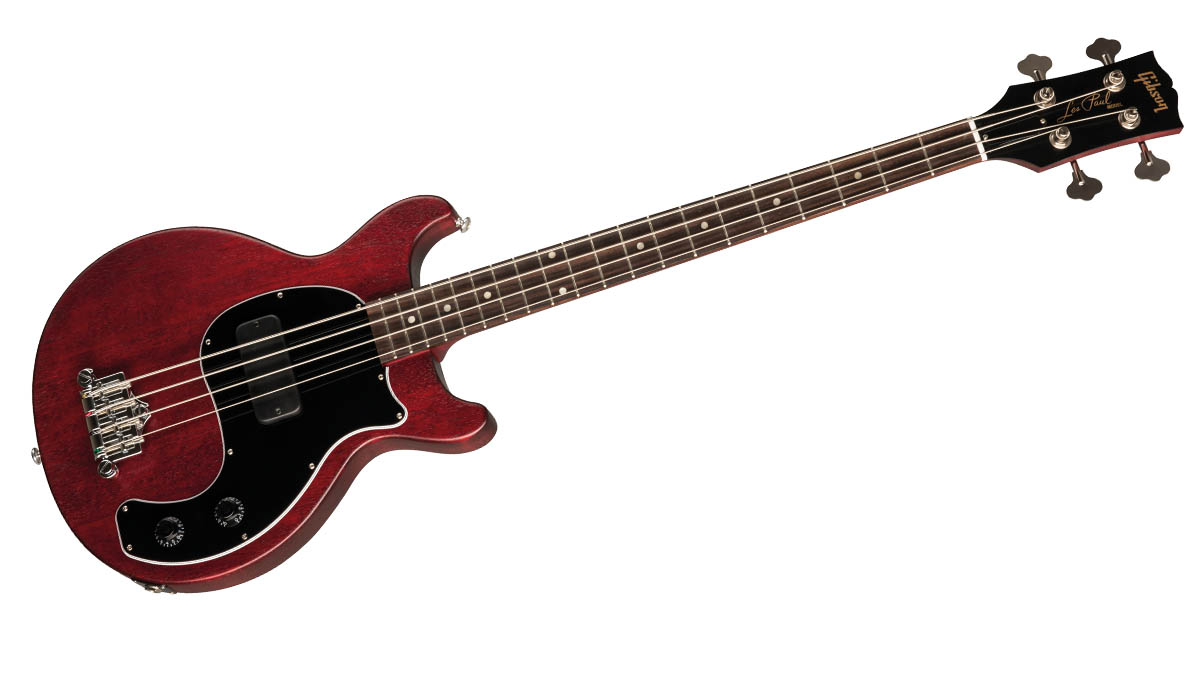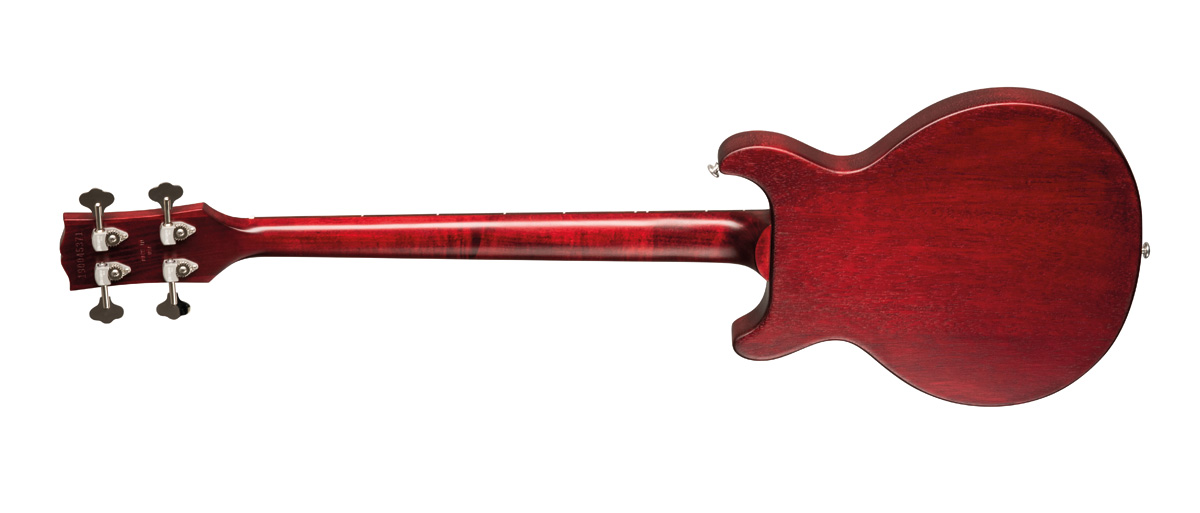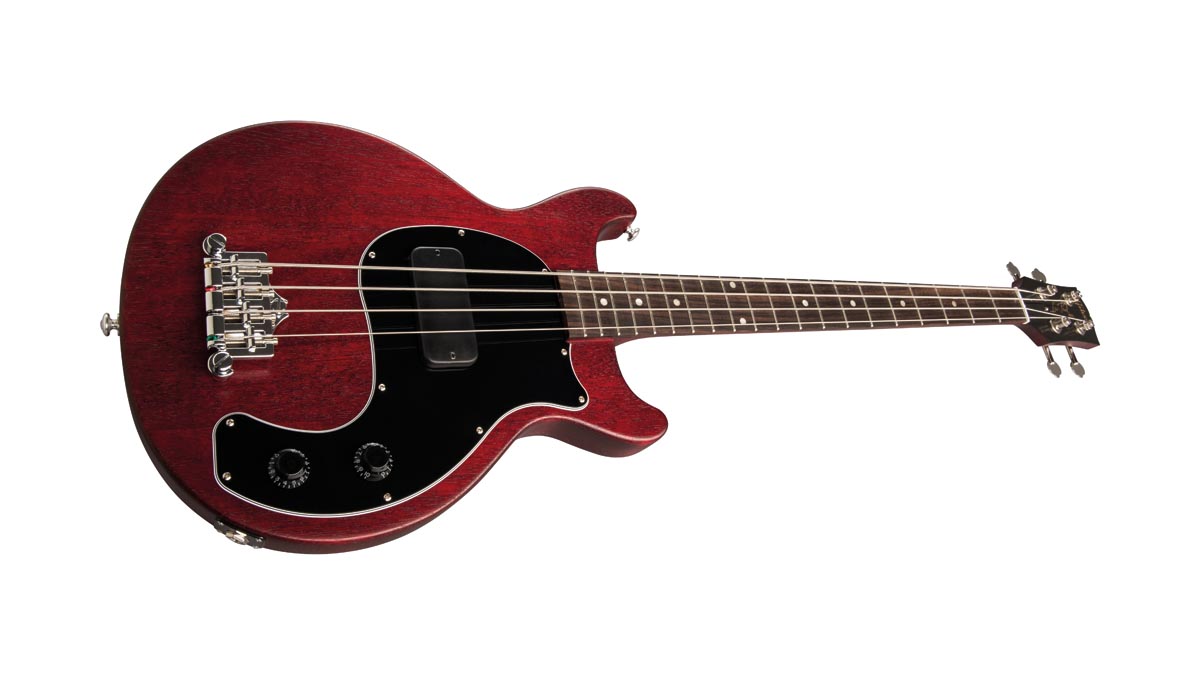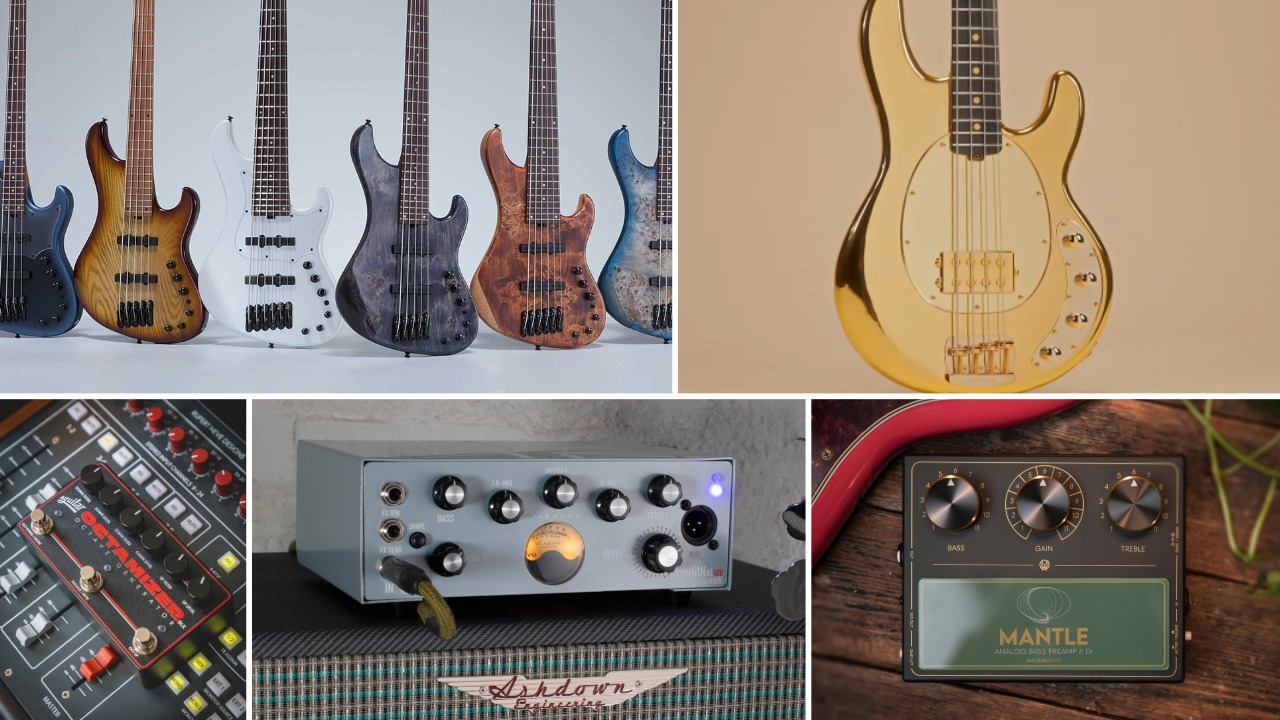Guitar World Verdict
Tons of fun, if you’re seeking a particular aesthetic, the Les Paul Jr DC Tribute DC Bass is an affordable taste of US-built Gibson bass history and a fine choice for some old-school tones.
Pros
- +
The small scale format is portable and accessible.
- +
Very playable.
- +
Authentic stylings and tone.
Cons
- -
Small dimensions may not suit everyone.
You can trust Guitar World
Short-scale bass guitars are definitely an important aspect of many modern bass players’ gear arsenal, thanks to their lesser string tension, the relief they give to your fingers, shoulders, and lower back, and possibly their airplane cabin-friendly dimensions.
We’ve road-tested quite a few shorties in recent years, and there’s no sign of the flow of shorts letting up any time soon. Gibson have sent us their recent Les Paul Junior bass for review, subtitled Tribute in homage to the company’s original EB-O from 1959, so let’s see how it matches up.
Build Quality
As an American-made bass with a pricetag in the high three figures, we’re expecting a pretty flawless playing experience. While that’s definitely what we get, note that this is a bass with its own character, its own mission, and no apparent need to cater for players’ more delicate sensibilities.
Looking for a nice, abdomen-friendly chamfer on the body? Forget it – this one is a slab, with corners to suit. Interested in lots of pickups? Nope. That’s not what this bass is about, so if you need multiple tone options, look elsewhere.
Keen on doing a nice upper-register solo? Good luck with that – you’ve only got 20 frets and a 30.5” scale to play with. What you do get, though, is a resolutely old-school look and feel, loaded with modern expertise.

Take the hardware, for example. Those tuners may look like the machine heads from that cheap bass you had at school, but they’re deceptive; smooth, silky Hipshot units, they move fast and feel solid. As for the bridge, this is a weighty unit anchored to the mahogany body with three chunky bolts, as opposed to the usual tiny screws that you instantly lose behind the sofa when you take them out.
The body itself is authentically retro; Gibson describe it as having a ‘worn’ finish, but this shouldn’t be construed as meaning relic-ed or with chunks taken out of the paint. Instead, it’s a relaxed shade of cherry that allows the feel of the lumber grain to come through. The vintage aesthetic goes as far as the set neck joint, rarely seen these days, and the two plastic tone and volume controls, numbered one through 10.
All the latest guitar news, interviews, lessons, reviews, deals and more, direct to your inbox!
A minor complaint is that they feel a touch insubstantial, given the cost of the bass, and also that most of their effect suddenly rolls on after you reach eight. Of course, that’s exactly how a lot of instrument potentiometers used to work back then.
Sounds And Playability
The LPJT has a single, massive humbucker with a coil tap plus a single tone control, which tells you pretty much everything you need to know about the tone range. The tap scoops the mids, so although you don’t actually have more top and bottom when you deploy it, a quick roll of the volume pot gives you the impression that you do.
As a matter of fact, the tapped tone is a useful addition, giving you some useful clank that you might not otherwise achieve, given the lower string tension of short-scale basses.

Untapped, and with only the tone control to play with, you can easily find an impressively thunderous bottom end for soul and blues lines.
Mids and top end are there, but not in huge quantities for obvious reasons; slapping is totally doable, for instance, but if that style is the main card in your pack, consider other basses. Again, that tone range is not what this bass was designed for. Instead, play with a range of dynamics and picking positions – just like they used to do in 1965 – and you’ll maximize your options.
Fortunately, the LPJT has been engineered for a very comfortable ride. The rear neck finish hits that sweet spot between slippery and grippy, and the action is low but not overly so. You can play with subtlety, or downpick as hard as you want; the bass will respond either way.
A consideration is that this is a small bass, which may not suit bassists of generous proportions. It feels great to play and the neck hugs your hand, but at the same time you may prefer some extra weightiness under your fingers. Your personal preferences will guide you here.

Conclusion
The Les Paul Junior Tribute does one job very well indeed: it looks, plays, and sounds like a 60s bass, but with modern production and engineering. It makes very few concessions towards today’s versatile player, although the tone options are more sophisticated than first appearances would indicate. Either way, you’ll have a hell of a lot of fun playing it.
Specs
- PRICE: $999 [MAP]
- MADE IN: USA
- BODY: Mahogany, choice of Worn Cherry, Worn Ebony, Worn Brown, Blue Stain finishes
- NECK: Maple, 30.5” scale
- Neck Joint: Set neck
- NUT WIDTH: 40mm
- FRETBOARD: Rosewood, 20 frets
- PICKUP: Les Paul Bassbucker
- CONTROLS: Volume (push/pull for coil-tap), tone
- HARDWARE: Hipshot tuners, Gibson bridge
- WEIGHT: 7.7 lbs
- CASE / GIGBAG INCLUDED: Gigbag
- LEFTHANDED: No
- CONTACT: Gibson
Joel McIver was the Editor of Bass Player magazine from 2018 to 2022, having spent six years before that editing Bass Guitar magazine. A journalist with 25 years' experience in the music field, he's also the author of 35 books, a couple of bestsellers among them. He regularly appears on podcasts, radio and TV.



